This trans man has documented being ‘an unheard of species’ in India
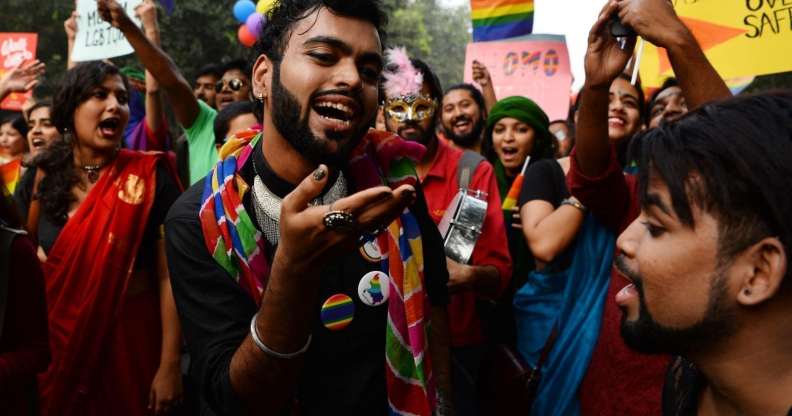
An LGBT pride parade in New Delhi in 2017 (SAJJAD HUSSAIN/AFP/Getty)
A trans man in India has spoken up about the lack of recognition of transgender men in Indian life.
Siddhant More, who lives in Mumbai, has said that trans men are “an unheard of species” in LGBT+ India, and are less visible than trans women in the community.
More, 38, is a trans activist, and surgically transitioned six years ago.
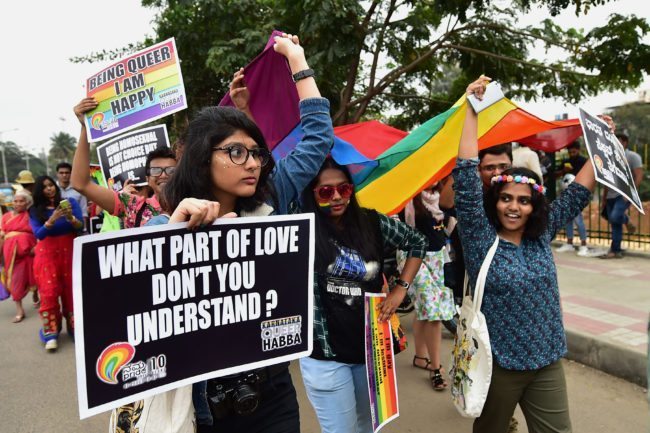
People march for equality in India (Getty)
He said that when he first came out as trans, his status as a trans male confused people.
“In the Indian context, transgender equals male-to-female transgender individuals, more specifically hijras. Transmen are an unheard of species, aliens at best,” he told Open Democracy.
After gaining the help of a supportive boss, More had his surgery subsidised. It took another three years to come out to his colleagues.
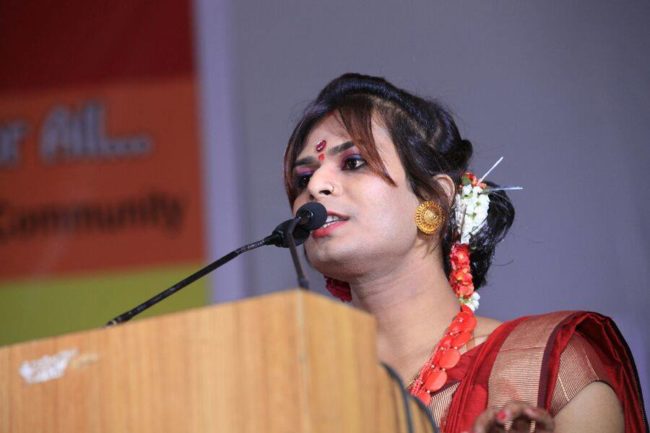
Joyita Mondal, India’s first transgender judge (Facebook)
“I explained to him that my soul was that of a male, but I was trapped in a woman’s body. He was supportive and sanctioned a loan and leave for my surgery.
“I finally came out last year to my colleagues — three whole years after I started my transition.
“Before that, I tried hiding my moustache by shaving it but they had realised much before that I was transitioning. If you want people to start addressing you as a male, it’s important to come out to them,” he told the publication.
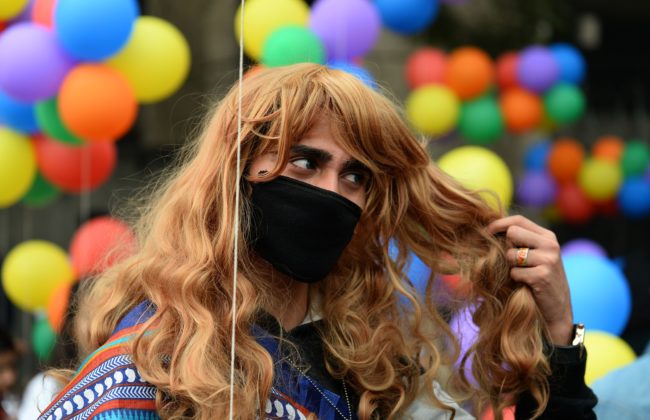
An Indian supporter of the lesbian, gay, bisexual, transgender (LGBT) community (SAJJAD HUSSAIN/AFP/Getty)
More believes that trans women have more rights than trans men in the country, and the disparity means that trans men are excluded from creating life-improving policy.
“Whenever laws and bills are passed regarding transgender rights, transmen are almost never called to the discussion table,” said More.
“Not once, have I been called, nor am I aware of other transmen who’ve been invited to sit with policy-makers. It’s as if the word ‘transgender’ in the Indian context is exclusively reserved to hijras and transgender women.”
It is illegal to be gay in India under Section 377.
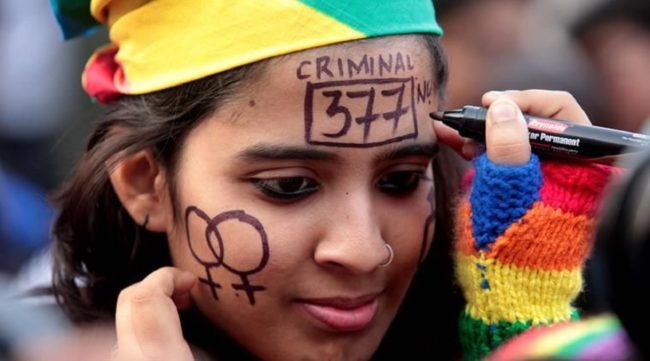
India’s Section 377 is one of the British colonial laws criminalising homosexuality (Getty)
The ambiguous penal-era law says that “unnatural” sex is prohibited under the ruling.
However, a battle to have the Section repealed in India’s Supreme Court could see that change.
More says, however, that the rules are “grey” for trans men, leaving them open to being blackmailed.
“The rules are so grey that even lesbians and transmen can be harassed and blackmailed. In fact, it’s heterosexual couples too who could be indulging in ‘unnatural sex’ but when it comes to them, it’s always and strictly a bedroom matter,” he told Open Democracy.

